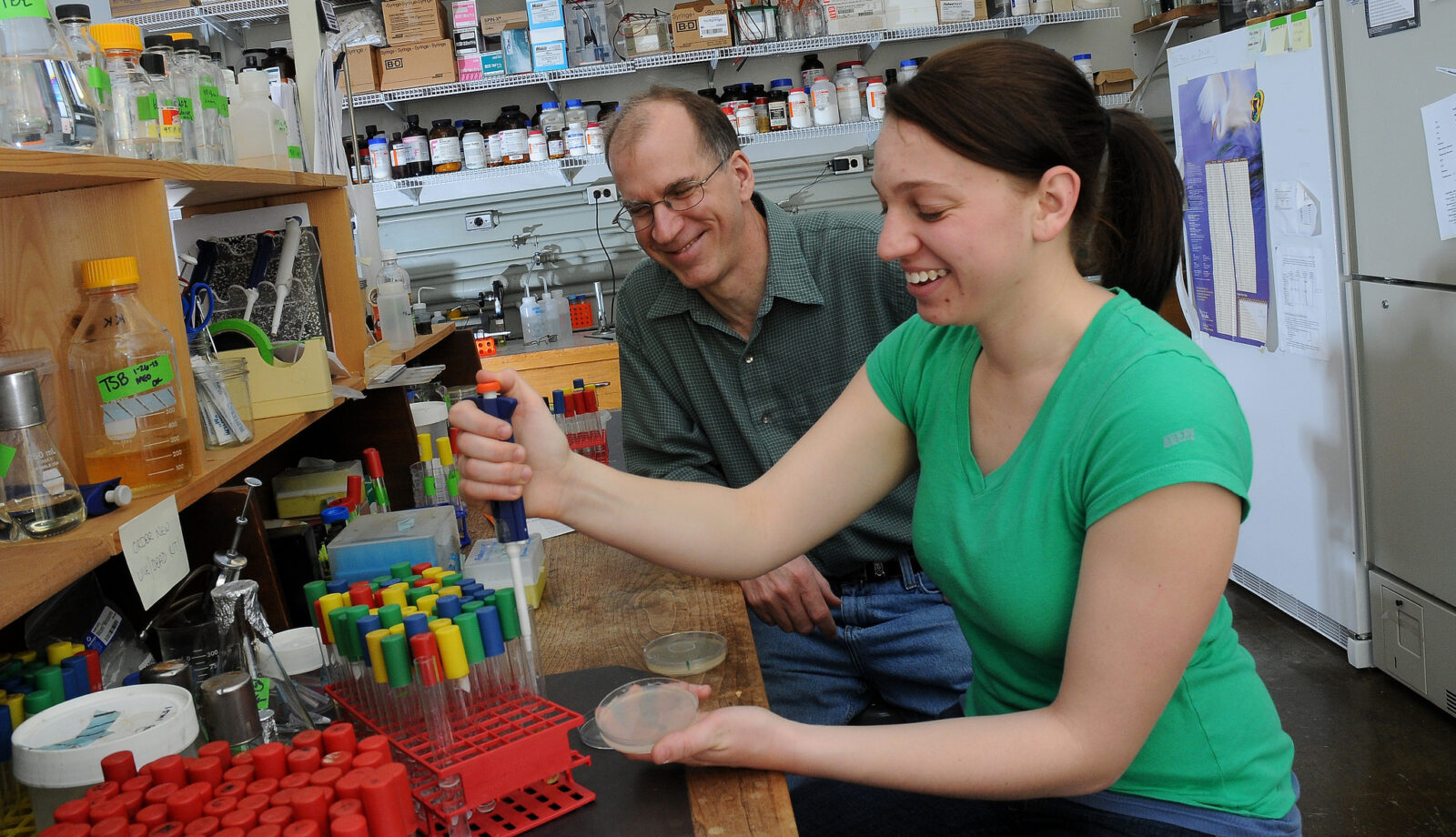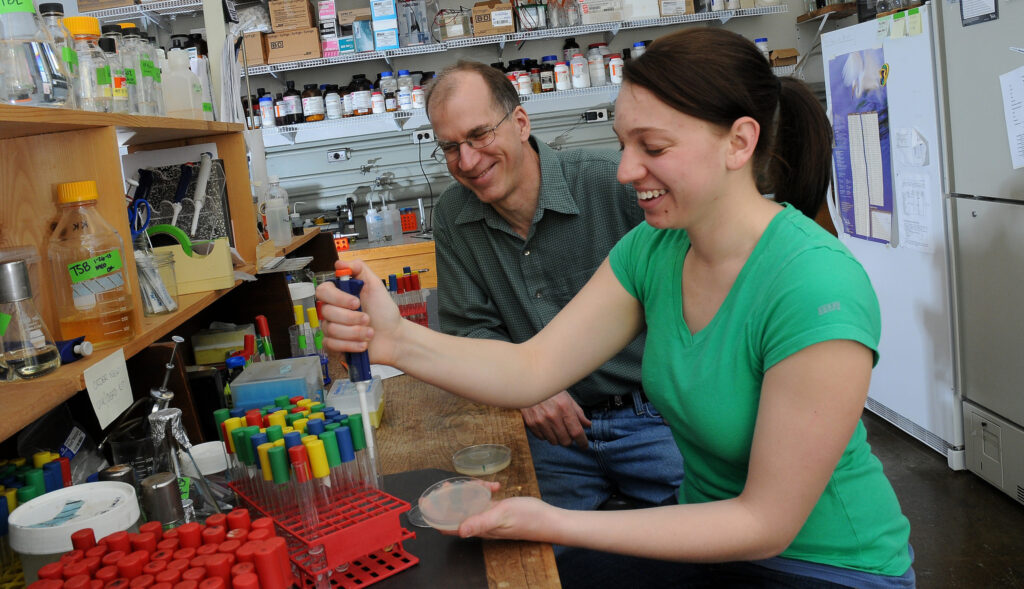Researchers use glass to limit spread of drug-resistant bacteria
Posted by Andrew Careaga

Dr. David J. Westenberg in the lab with Megan Ottomeyer, a Missouri S&T graduate who is now in medical school.

Dr. David J. Westenberg in the lab with Megan Ottomeyer, a Missouri S&T graduate who is now in medical school.
As G20 health experts meet this week to discuss the need for new antibiotics to combat drug-resistant bacteria, researchers at Missouri University of Science and Technology are looking to an unusual material – glass – to limit the spread of drug-resistant bugs in humans.
The glass in this case is “bioactive” – meaning that it has an effect on living tissue. One type of bioactive glass developed at Missouri S&T is a cotton candy-like fiber used to speed the healing of chronic wounds.
Dr. David J. Westenberg, associate professor and interim chair of biological sciences at Missouri S&T, is studying the anti-bacterial properties of this and other bioactive glasses to understand how they can potentially reduce the possibility of infection by drug-resistant “superbugs.” On Monday, Feb. 27, the World Health Organization published, for the first time ever, a list of antibiotic-resistant families of bacteria that pose the greatest threat to human health.
The WHO list is designed to promote research and development of new antibiotics to address growing global resistance to antimicrobial medicines.
Westenberg says the use of bioactive glass treatments could prevent the spread of bacteria.
“The advantage of these glasses is that we don’t see infections in wounds during the treatments,” says Westenberg. “If we can prevent infections in the first place, we don’t have to rely so much on antibiotics to treat infections.”
In addition to the glass fiber that can speed healing of open wounds, Missouri S&T researchers are looking at other uses for bioactive glasses. They include designing glass implant materials that could minimize infection, coating implant materials with glass or metal ions that help prevent introducing bacteria into the patient, and creating glass-coated surfaces for use in hospitals and nursing homes, where drug-resistant bugs pose a particular threat, according to the WHO.
The bioactive glass fibers were developed by Dr. Delbert Day, Curators’ Distinguished Professor Emeritus of ceramic engineering at Missouri S&T and founder of Mo-Sci Corp., a Rolla-based company that manufactures specialty glasses for medical applications.
Westenberg is also a research investigator in the Center for Biomedical Science and Engineering at Missouri S&T.
Leave a Reply